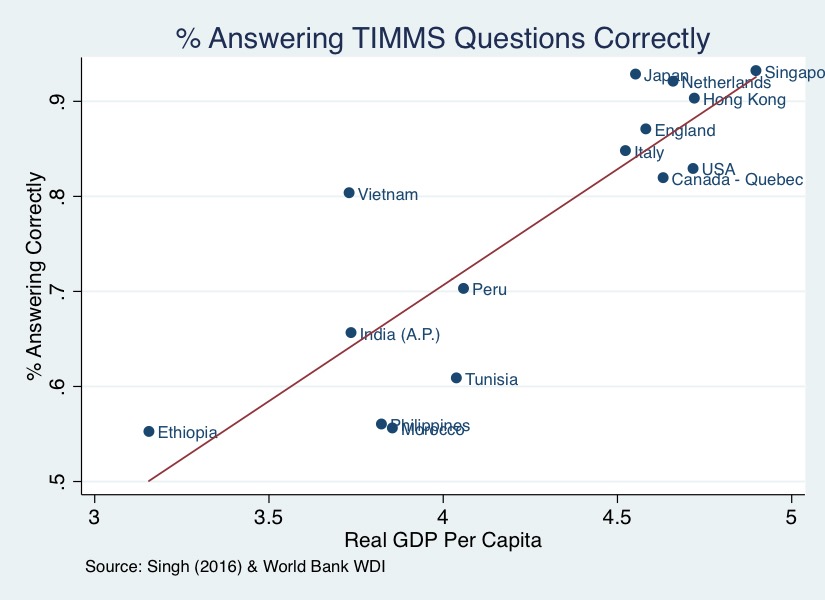Last week I was at the Society for Research on Educational Effectiveness (SREE) conference.
Alex Eble made a big and apparently successful push to increase representation by researchers focused on developing countries. In time-honoured Dave Evans style, here's my one-sentence roundup of 22 idiosyncratically selected studies presented at the conference. You can see the full programme here.
---
Public-private partnerships
A subsidy for private schools in Haiti lead to higher enrolment (Adelman, Holland, and Heidelk) #Haiti
Chile has a universal school voucher and a higher voucher targeted at low-income students. The universal voucher is better for aggregate efficiency but worse for equity (Sanchez) #Chile #StructuralModel
Giving out vouchers to attend 5 years of low-cost private primary school in Delhi led to worse Hindi scores and no change in English or Maths (Crawfurd, Patel, and Sandefur) #India
Contracting out management of public schools to NGOs in Liberia led to a 60% increase in learning (Romero, Sandholtz, and Sandefur) #Liberia
School management
A mobile-phone based support programme for school councils in Pakistan led to no improvement for students (Asim) #Pakistan #Diff-in-Diff
A major school inspection reform in Madhya Pradesh led to no improvement in schools (Muralidharan and Singh) #India
Independent monitoring of teachers led to better student performance (Kim, Yang, Inayat) #Pakistan #Diff-in-Diff
Mindfulness
Mindfulness interventions reduced sadness and aggression of children in Niger (Kim, Brown, De Oca, Annan, Aber), improved concentration and prosocial behaviour in Sierra Leone (Brown, Kim, Annan, Aber), and increased prosocial behaviour amongst Syrian refugees (Keim and Kim) #Niger #SierraLeone #Syria
Information for parents
Incentives for teachers
BUT A simpler “threshold” incentive scheme can be as effective as the theoretically optimal “Pay for Percentile” (at least in the short-run) (
Mbiti, Romero, Schipper) #Tanzania
Methodology
Studies commissioned by the developer of an intervention find effect sizes 80% larger than studies commissioned independently (Wolf, Morrison, Slavin, Risman) #USA #MetaAnalysis #EvaluatorIndependence
Tests designed specifically for evaluations produce effect sizes 63% larger than generic tests (Pellegrini, Inns, Lake, Slavin) #USA #MetaAnalysis #TestDesign
External validity bias (non-random selection of schools into trials) is twice as big as internal validity bias (from using observational not experimental methods) (White, Hansen, Lycurgus, Rowan) #USA #ExternalValidity
Technology
The One Laptop Per Child programme in Peru had zero effect on learning (Cristia, Ibarrarán, Cueto, Santiago and Severín) #Peru
In addition, providing internet had no effect on student learning (Malamud, Cueto, Cristia, Beuermann) #Peru
Peer effects
Being the weakest student in a better (selective) school can be worse than being the strongest student in a worse school (Fabregas) #RDD #Mexico
Finance
Temporary subsidies can have permanent effects on enrolment (Nakajima) #Indonesia #Diff-in-Diff
Merit-based scholarships have bigger effects than need-based scholarships (Barrera-Osorio, de Barros, Filmer) #Cambodia
Heat
Each 1 degree Fahrenheit of school year temperature reduces learning by 1 percent. Air conditioning entirely offsets this. (
Goodman, Hurwitz, Park, Smith) #FE #USA







